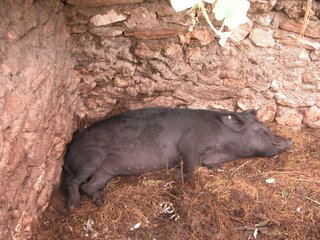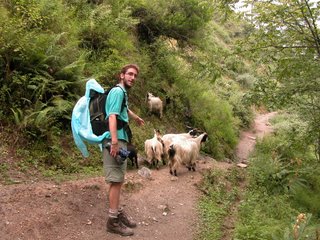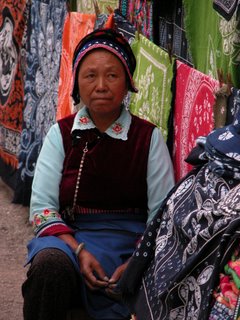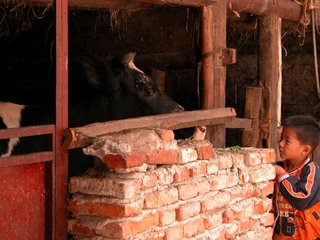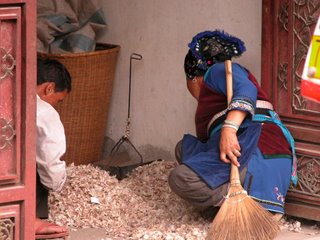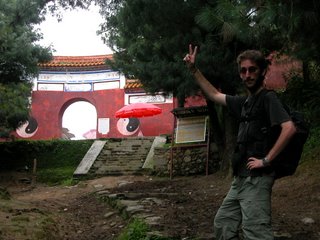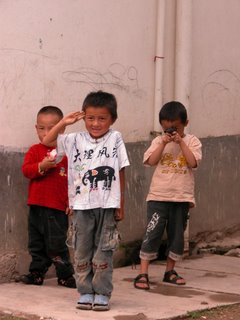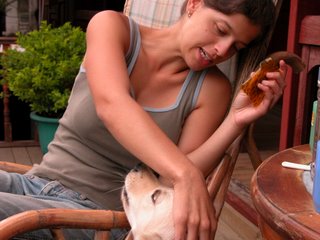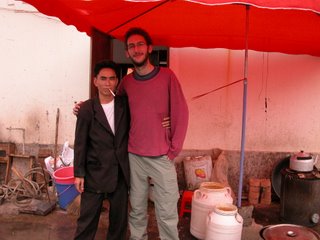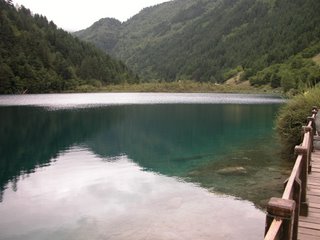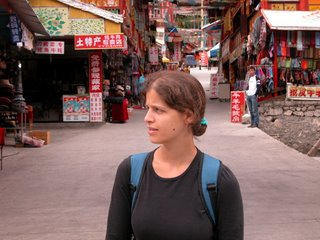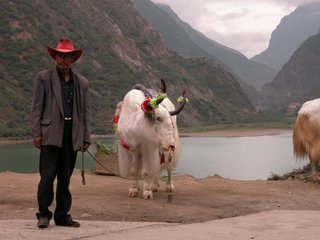
Finally we got out of the city a little bit. After 2 rainy days in Lijiang we drove to a little village named Qiaotou there we began, together with a bunch of other israelies, the tiger Leaping George trek. it's not really a trek, more like a 2 day trip, but who cares. The path went up the mountains, and after a couple of hours of tough climb we reached the summit. from there we could see the amazing view of the Yang Tze river digging it's magnifisant way through the deep canyon. the view was something out of this world, and the walk was worth it all.
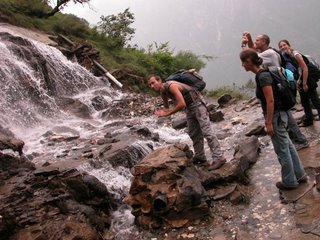
along the path there are many tea houses and guesthouses with many chinese villagers who are dying for some westerns to leave their money at their hands. just before it got dark we arrived the "half-way guest house" were we stayed for the night. all we israelies had a very big and nice friday night dinner and chat about how china is a strange place, and how we miss little things back home. at some point, not surprisingly, we started talking about the army and stuff like that, and had a lot of laughs.

Before we went on the trek we spend some time at Lijiang, which is a really small town, in chinese terms. it's very touristic, but just a pleasent and not too agressive as Beijing. We slept in a very very odd guesthouse called Ma-Ma Naxi, after the bossy mama that runs it. she's a bit crazy, and gives everybody bananas and weird chinese masscouts. the food here was great, and that's not so common in china, and it's full of israelies, so all in all we had a good time.

We are already 3 weeks in china, and i think only now we really got used to the idea that we are here. it's a very different place from what we know. the mentality, the people, the toilets... after the initial shock i think we started to understand how things work around here.




